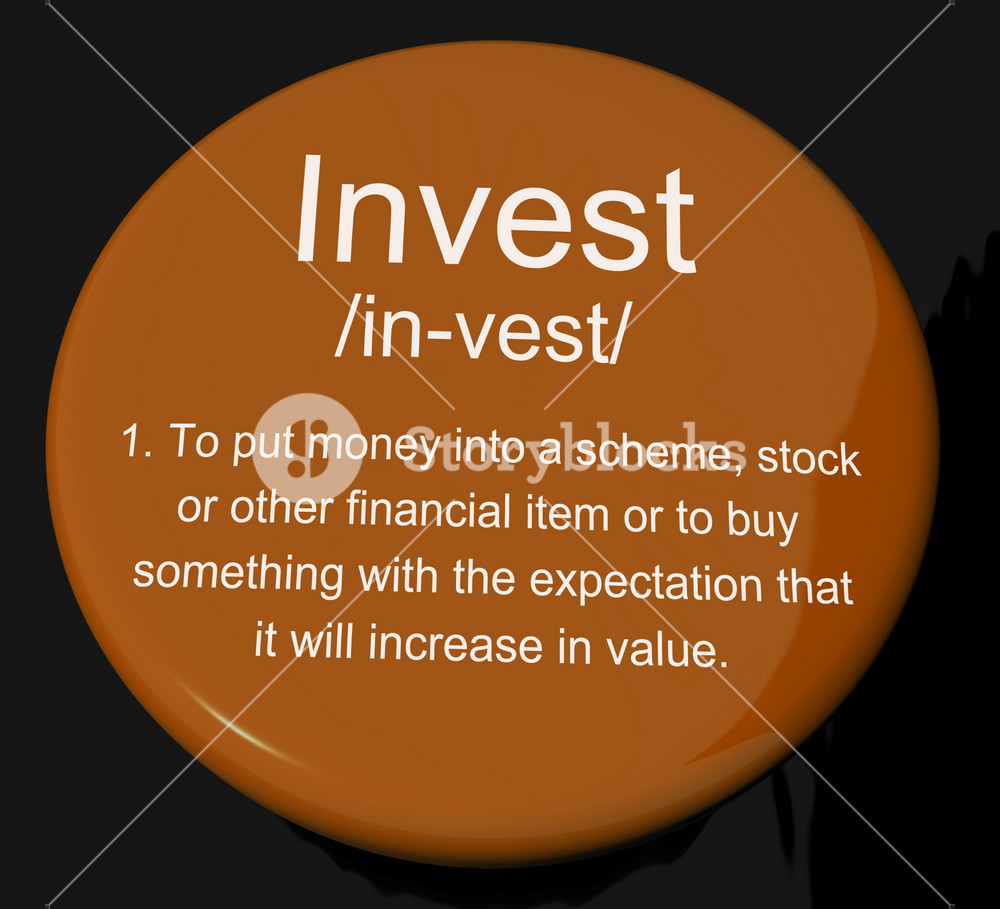
You want to diversify or trade stocks. The best brokerage accounts will help you do that. There are two main types. There are two main types of brokerages: full-service and discount. These brokerages offer many benefits and features that can help you select the best one.
These accounts are great for beginners. These accounts give you the opportunity to learn about investing and allow you full control of your account. These accounts provide access to all of the tools you will need to invest. They may be beneficial for investors who are more experienced.
Full service brokerage accounts allow for professional portfolio management. You will also be charged an additional fee. They might be a good choice if you are new to investing or have some money to invest. They also offer advice and stock tips.

Researching your options is key to finding the best brokerage account. It is important to evaluate your investment style and the features offered by each broker. JP Morgan's Selfdirected investing account is a good choice for casual investors. Betterment can help you build a sophisticated portfolio. Betterment allows you to build a portfolio that is based on your risk tolerance as well as your personal goals. The account comes with 60 professionally prepared portfolios. The account can also set up auto-pilot. This allows you to create your own portfolio, without having to manage your account.
Fidelity, Charles Schwab and other investment options are both top picks. In addition, both offer excellent research tools and excellent customer service. These brokerages can be used to help you build a diversified portfolio that will allow you to grow over the long-term.
Vanguard is a good alternative. Vanguard specializes in ETFs and offers low fees. You can also trade some mutual funds without commissions, as is the case with IRAs.
M1 Finance is another good option, especially if you want to manage your stock portfolio. You can choose from more than 60 portfolios that have been pre-made, or you can build your own portfolios to manage on autopilot. They also offer a free automated account package, which includes a 30% cash position and 0.30% per annum in fees.

Interactive Brokers is another popular choice, especially for those who trade stocks. You have access to over 135 financial markets across 33 countries. It also offers a powerful trading platform. Interactive Brokers charges no inactivity fees and has no minimum account balance.
Ally Invest is another great choice, especially for people who want to manage all their financial belongings under one account. They offer wealth management, investment advisory, and low-cost ETFs. Although they don't specialize, their portfolios include core portfolios that are socially responsible and tax-optimized. They are known for their high trade rates for active traders.
FAQ
How do you choose the right investment company for me?
A good investment manager will offer competitive fees, top-quality management and a diverse portfolio. The type of security in your account will determine the fees. While some companies do not charge any fees for cash holding, others charge a flat fee per annum regardless of how much you deposit. Others charge a percentage on your total assets.
It is also important to find out their performance history. Companies with poor performance records might not be right for you. Avoid companies with low net assets value (NAV), or very volatile NAVs.
It is also important to examine their investment philosophy. To achieve higher returns, an investment firm should be willing and able to take risks. If they are not willing to take on risks, they might not be able achieve your expectations.
What is a fund mutual?
Mutual funds are pools of money invested in securities. They allow diversification to ensure that all types are represented in the pool. This reduces risk.
Professional managers oversee the investment decisions of mutual funds. Some funds permit investors to manage the portfolios they own.
Mutual funds are often preferred over individual stocks as they are easier to comprehend and less risky.
How are securities traded?
Stock market: Investors buy shares of companies to make money. In order to raise capital, companies will issue shares. Investors then purchase them. Investors can then sell these shares back at the company if they feel the company is worth something.
Supply and demand are the main factors that determine the price of stocks on an open market. If there are fewer buyers than vendors, the price will rise. However, if sellers are more numerous than buyers, the prices will drop.
There are two methods to trade stocks.
-
Directly from your company
-
Through a broker
What is the difference in marketable and non-marketable securities
Non-marketable securities are less liquid, have lower trading volumes and incur higher transaction costs. Marketable securities can be traded on exchanges. They have more liquidity and trade volume. Because they trade 24/7, they offer better price discovery and liquidity. But, this is not the only exception. Some mutual funds are not open to public trading and are therefore only available to institutional investors.
Non-marketable security tend to be more risky then marketable. They generally have lower yields, and require greater initial capital deposits. Marketable securities are usually safer and more manageable than non-marketable securities.
For example, a bond issued in large numbers is more likely to be repaid than a bond issued in small quantities. The reason for this is that the former might have a strong balance, while those issued by smaller businesses may not.
Investment companies prefer to hold marketable securities because they can earn higher portfolio returns.
How can people lose money in the stock market?
The stock market is not a place where you make money by buying low and selling high. You can lose money buying high and selling low.
The stock market is for those who are willing to take chances. They would like to purchase stocks at low prices, and then sell them at higher prices.
They want to profit from the market's ups and downs. But if they don't watch out, they could lose all their money.
Statistics
- The S&P 500 has grown about 10.5% per year since its establishment in the 1920s. (investopedia.com)
- Our focus on Main Street investors reflects the fact that American households own $38 trillion worth of equities, more than 59 percent of the U.S. equity market either directly or indirectly through mutual funds, retirement accounts, and other investments. (sec.gov)
- US resident who opens a new IBKR Pro individual or joint account receives a 0.25% rate reduction on margin loans. (nerdwallet.com)
- "If all of your money's in one stock, you could potentially lose 50% of it overnight," Moore says. (nerdwallet.com)
External Links
How To
How to Open a Trading Account
First, open a brokerage account. There are many brokers on the market, all offering different services. Some have fees, others do not. Etrade (TD Ameritrade), Fidelity Schwab, Scottrade and Interactive Brokers are the most popular brokerages.
Once your account has been opened, you will need to choose which type of account to open. These are the options you should choose:
-
Individual Retirement accounts (IRAs)
-
Roth Individual Retirement Accounts
-
401(k)s
-
403(b)s
-
SIMPLE IRAs
-
SEP IRAs
-
SIMPLE 401K
Each option offers different benefits. IRA accounts offer tax advantages, but they require more paperwork than the other options. Roth IRAs allow investors to deduct contributions from their taxable income but cannot be used as a source of funds for withdrawals. SEP IRAs are similar to SIMPLE IRAs, except they can also be funded with employer matching dollars. SIMPLE IRAs are very simple and easy to set up. They enable employees to contribute before taxes and allow employers to match their contributions.
Finally, determine how much capital you would like to invest. This is also known as your first deposit. Most brokers will give you a range of deposits based on your desired return. Depending on the rate of return you desire, you might be offered $5,000 to $10,000. The conservative end of the range is more risky, while the riskier end is more prudent.
After you've decided which type of account you want you will need to choose how much money to invest. Each broker sets minimum amounts you can invest. These minimums vary between brokers, so check with each one to determine their minimums.
After choosing the type account that suits your needs and the amount you are willing to invest, you can choose a broker. Before you choose a broker, consider the following:
-
Fees: Make sure your fees are clear and fair. Many brokers will try to hide fees by offering free trades or rebates. However, many brokers increase their fees after your first trade. Don't fall for brokers that try to make you pay more fees.
-
Customer service – You want customer service representatives who know their products well and can quickly answer your questions.
-
Security - Select a broker with multi-signature technology for two-factor authentication.
-
Mobile apps: Check to see whether the broker offers mobile applications that allow you access your portfolio via your smartphone.
-
Social media presence - Check to see if they have a active social media account. If they don’t, it may be time to move.
-
Technology - Does the broker utilize cutting-edge technology Is the trading platform user-friendly? Are there any issues with the system?
Once you have decided on a broker, it is time to open an account. Some brokers offer free trials while others require you to pay a fee. After signing up, you will need to confirm email address, phone number and password. You will then be asked to enter personal information, such as your name and date of birth. Finally, you'll have to verify your identity by providing proof of identification.
Once you're verified, you'll begin receiving emails from your new brokerage firm. These emails contain important information about you account and it is important that you carefully read them. This will include information such as which assets can be bought and sold, what types of transactions are available and the associated fees. Keep track of any promotions your broker offers. These may include contests or referral bonuses.
Next, open an online account. Opening an online account is usually done through a third-party website like TradeStation or Interactive Brokers. Both of these websites are great for beginners. You'll need to fill out your name, address, phone number and email address when opening an account. After this information has been submitted, you will be given an activation number. You can use this code to log on to your account, and complete the process.
Now that you have an account, you can begin investing.